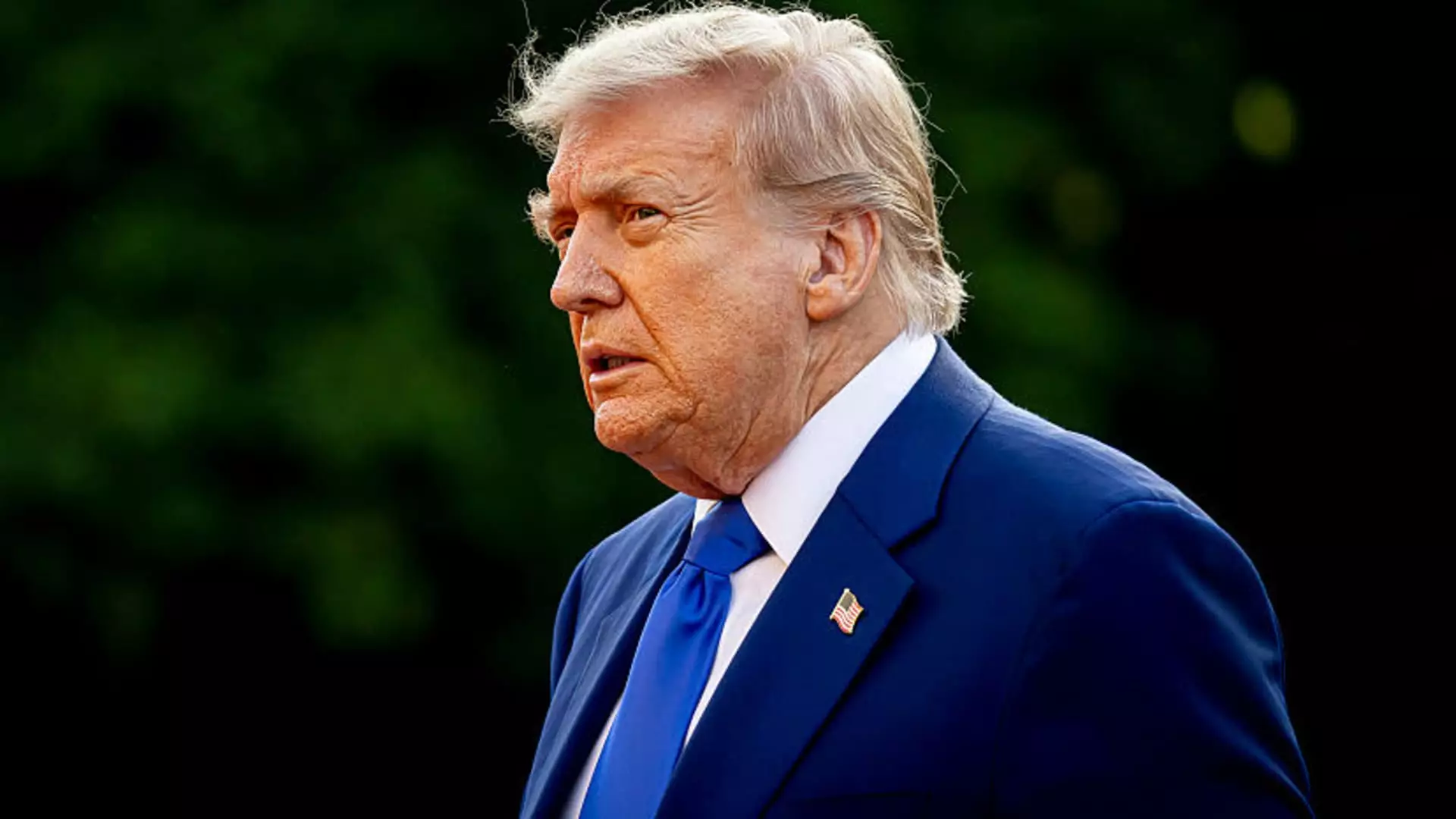In the ever-volatile world of American trade policy under President Donald Trump, deadlines seem to be more fluid than fixed. The recent statements from White House press secretary Karoline Leavitt reflect this uncertainty, suggesting that the upcoming self-imposed tariff deadlines may be more malleable than previously thought. While it might seem strategic to allow for flexibility, this modus operandi can lead to an illusory sense of stability for both the markets and the foreign entities involved. The administration’s penchant for postponing critical deadlines does not signify strength or negotiating prowess; rather, it underscores a troubling tendency to prioritize short-term political optics over long-term economic stability.
Procrastination as Public Policy
Trump’s administration has made headlines with its ambitious proposals for trade deals, including previous threats of excruciating 50% tariffs on the European Union, which were notably tempered after pushback from European Commission President Ursula von der Leyen. The idea that the president can simply impose a tariff or extend deadlines is an administration hallmark—one that undermines the seriousness of such measures. When market players and international stakeholders are left in a state of limbo, it creates an unmanageable environment for businesses planning their future strategies. Trump’s willingness to adapt deadlines—as suggested by Leavitt—reveals a tangible reluctance to commit to decisive action, raising concerns for those who hope for robust negotiations that can foster lasting economic relationships.
The Fragile Nature of “Good Faith” Negotiations
Trump’s approach appears to hinge on the nebulous notion of “good faith” negotiations. However, this raises critical questions regarding which countries fall under this umbrella and what genuine goodwill looks like in the context of international trade. With economic advisers like Stephen Miran suggesting potential for extensions in tariff deadlines for nations engaged in “good faith,” it seems the administration is attempting to create a mirage of progress, even amidst stagnation. The optimistic portrayal of nearing deals with countries like India is particularly concerning, as it raises expectations without delivering tangible results.
In terms of progress, the U.S. administration has thus far struck agreements mainly with China and the United Kingdom, yet these have been superficially described as “frameworks” rather than fully realized trade agreements. This unfortunate trend illustrates the gap between Trump’s lofty aspirations and the ground realities of international economic diplomacy—a dangerous rift that could easily translate into greater discontent among American workers and businesses if not addressed earnestly.
The Economic Reality Behind the Rhetoric
The Yuletide promise of multiple trade agreements within a burned-out 90-day timeline contradicts the palpable inertia we are witnessing. Administration insiders might suggest that we are on the precipice of significant trade agreements, but without concrete policies, these assertions ring hollow. The constant promise of impending deals may lend temporary hope, but ultimately it sets up the economy for disappointment. Economic uncertainty severely hampers businesses’ ability to plan, leading to hesitancy in investments, hiring, and expansion.
Hearing words of encouragement from officials like Kevin Hassett belies the reality of the situation. If the dynamic geopolitical landscape creates an environment where the only certainty is uncertainty, firms will remain on the sidelines, waiting for clarity that rarely arrives.
Tariffs as Bargaining Chips—Or Political Tools?
The essential nature of tariffs should perhaps not be seen merely as bargaining chips but rather as tactical tools in a political game. However, the devastating impact of these levies on the domestic economy—especially if they become prolonged or uncertain—cannot be ignored. At what point do such tactics cease to be beneficial instruments of negotiation and instead morph into debilitating weights around the neck of the American consumer? As Trump telegraphs the potential for extending tariff deadlines, it might serve his immediate political ends, but economically speaking, the long-term repercussions could be dire.
In an age marked by an inclination toward populist measures, the sacrifices made at the altar of short-term political gain could unveil a broader narrative—one fraught with consequences for day-to-day Americans. While the administration’s efforts to portray itself as pro-worker deserve recognition, the tactics employed cast a long shadow on the economic landscape.


Leave a Reply